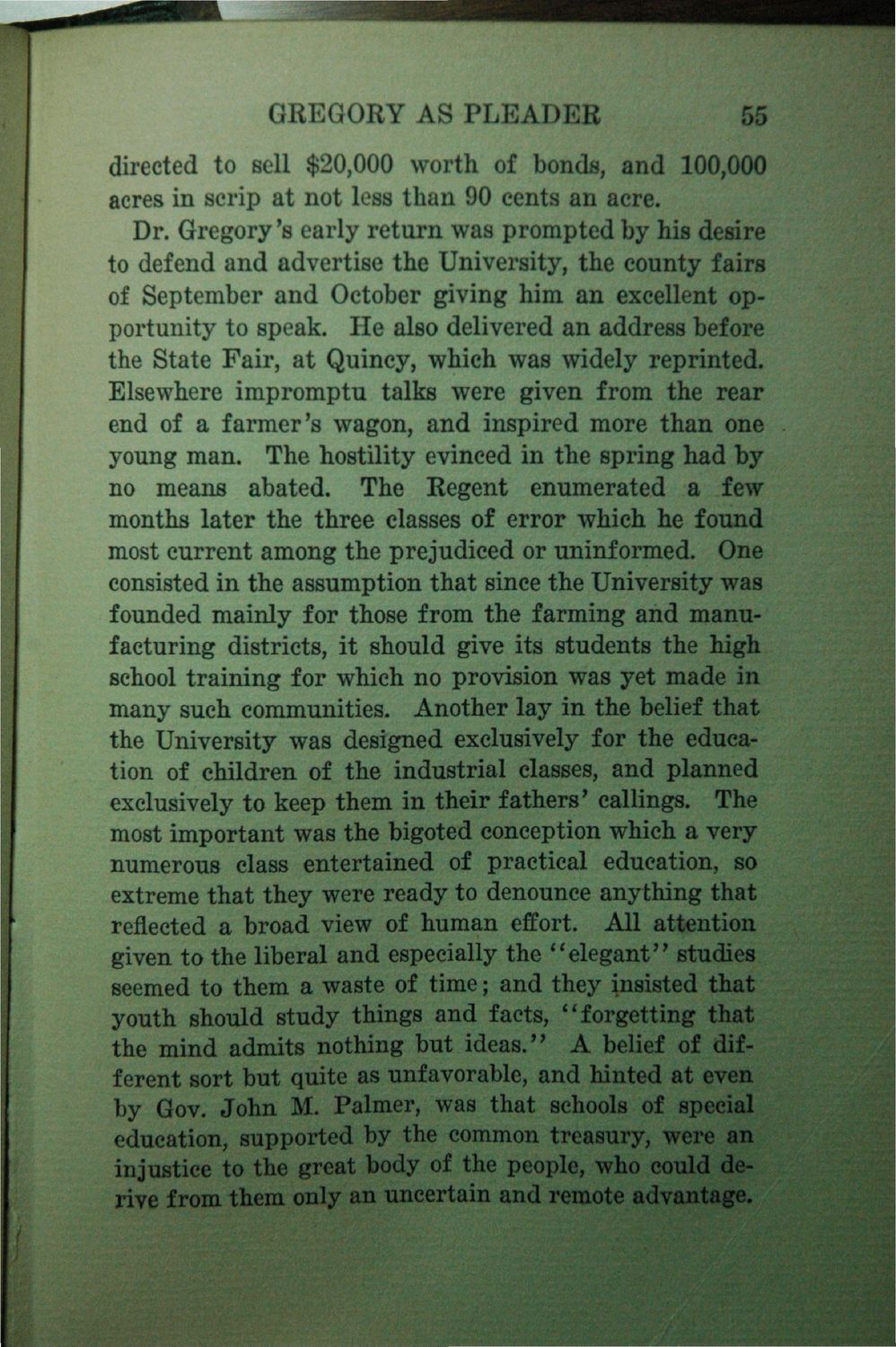| |
| |
Caption: Book - History of the University (Nevins)
This is a reduced-resolution page image for fast online browsing.

EXTRACTED TEXT FROM PAGE:
GREGORY AS PLEADER 55 directed to sell $20,000 worth of bonds, and 100,000 acres in scrip at not less than 90 cents an acre. Dr. Gregory's early return was prompted by his desire to defend and advertise the University, the county fairs of September and October giving him an excellent opportunity to speak. He also delivered an address before the State Fair, at Quincy, which was widely reprinted. Elsewhere impromptu talks were given from the rear end of a farmer's wagon, and inspired more than one young man. The hostility evinced in the spring had by no means abated. The Regent enumerated a few months later the three classes of error which he found most current among the prejudiced or uninformed. One consisted in the assumption that since the University was founded mainly for those from the farming and manufacturing districts, it should give its students the high school training for which no provision was yet made in many such communities. Another lay in the belief that the University was designed exclusively for the education of children of the industrial classes, and planned exclusively to keep them in their fathers' callings. The most important was the bigoted conception which a very numerous class entertained of practical education, so extreme that they were ready to denounce anything that reflected a broad view of human effort. All attention given to the liberal and especially the "elegant" studies seemed to them a waste of time; and they insisted that youth should study things and facts, "forgetting that the mind admits nothing but ideas." A belief of different sort but quite as unfavorable, and hinted at even by Gov. John M. Palmer, was that schools of special education, supported by the common treasury, were an injustice to the great body of the people, who could derive from them only an uncertain and remote advantage.
| |